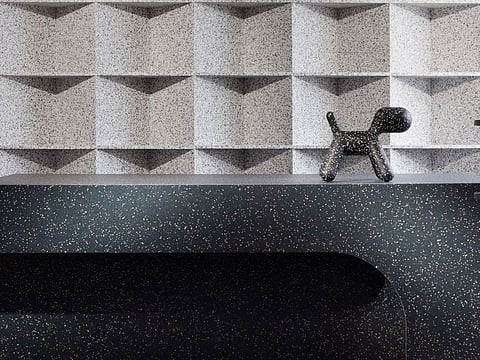Design Diary: Make the right choice
Change begins at home and these brands are here to help you make conscious decisions

I read this somewhere recently and it refuses to leave me: ‘Where we spend our money is a vital indicator of what we value.’
And what we value most, even more that the present, is our future. In our attempt to reverse some of the damage we’ve caused to the planet, self-examination is the need of the hour. We need to be conscious of everywhere we swipe our cards, to make sure that those who profit are in alignment with what we believe in.
Greed and disregard are at the heart of our ecological crisis, but disposable consumerism is the root.
We can all be eco-warriors; it is in the smallest choices we make, that every single one of us can make a difference. The premise of my column focuses me on design choices, and I must say, I am no longer willing to accept this oft brandished comment: ‘Sustainable Design is Costly.’
It might have a comparatively higher initial cost, but it pays for itself through the course of its life. Think lower energy bills, actually durable furniture, but most importantly, think ‘better quality of life.’
I have surprised myself into admission that a brand built on flat-pack solutions and synonymous with disposable consumerism might just be leading a movement to make conscious design more accessible.
In India, every year, once rice is harvested, the straw is burnt to make way for the next crop cycle. The smoke is a major contributor to the already scary smog problem in northern India, where nine out of 10 of the world’s most polluted cities are situated.
Unveiled earlier this month at Democratic Design Days, Ikea’s annual conference, the Forandring collection hopes to reduce crop-rotation related smoke by providing small-scale farmers an alternative.
Brainchild of Akanksha Deo, an Ikea product designer based in India, the homeware collection employs two methods of using the rice straw waste. Lampshades and vessels are made from a pulp created by mixing rice straw and fabric waste, and the mats feature a weaving technique that uses straws in varying lengths twisted into cords.
Joining the Farandring collection in Ikea’s war on pollution is Gunrid, an air-purifying curtain developed in collaboration with university institutions in Europe and Asia.
Working with both natural and artificial light, the yet-to-be-launched product will feature a photocatalyst mineral coating that works like photosynthesis; only in this case, pollution particles are broken down when light shines through it.
Another Swedish brand that is making headway in marrying design with conscience is Tarkett. Producer of a wide range of surfaces including vinyl, laminate, wood, carpet rolls and tiles, Tarkett is invested in cradle to cradle production. Through its ReStart programme, the company collects waste and end of use flooring — its own, and that from its competitors — and recycles it back into its versatile new products.
Launched in 2017, Really is Denmark-based textile manufacturer Kvadrat’s sustainable recycling company. It creates innovative materials such as acoustic felts and solid boards by upcycling waste wool and cotton. Additionally, Kvadrat also donates textiles from discontinued collections to charitable institutions, utilises them in creative projects, or even sells them at discounted rates through the online fabric marketplace — Queen of Raw.
Even Kartell, the Italian brand known for its stunning plastic furniture and homewares is changing directions. Case in point, the new release of their best-selling Componibili storage unit. Renamed CL, after Kartell president Claudio Luti, the revamped unit is manufactured from a new bioplastic derived from agricultural waste. Originally created in the 1960s and using ABS plastic, Componibili2.0 uses natural polyesters called linear polyhydroxyalkanoates that are a result of bacteria fermented farm waste. For a brand that disrupted the furniture industry in 1949 by making plastic cool and coveted, 70 years later they are still ahead of themselves.

